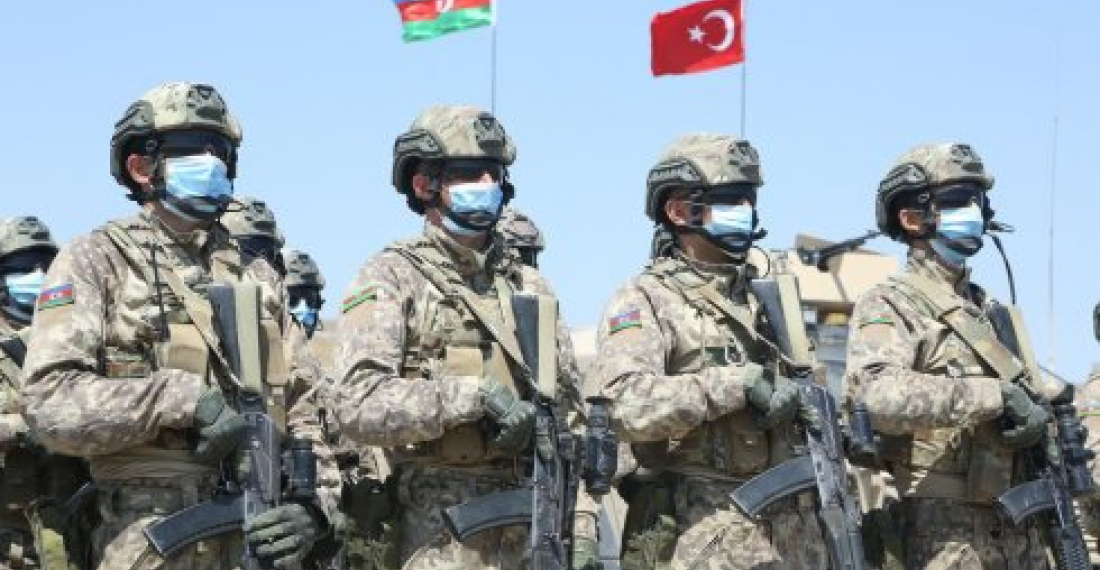Turkish Defence Minister, Hulusi Akar, who is currently on a visit to Azerbaijan has said that Turkey will stand with Azerbaijan in its conflict with Armenia.
"We stand by Azerbaijan against Armenia, which committed genocide in Khojaly in front of the whole world and occupied Nagorno-Karabakh. Azerbaijan is not alone," Akar said. The remarks were carried in a video broadcast by the Turklish Anadolu News Agency where Akar was seen reading from notes.
The Defence Minister arrived in Azerbaijan on Wednesday evening accompanied by senior officials of the Turkish Army, Air Force and Navy to observe the end of the first phase of military manoevres between the armies and air forces of Turkey and Azerbaijan which have been taking place in recent days.
Earlier on Thursday (13 August), the Turkish Defence Minister spoke about the significance of the military exercises.
"Azerbaijan-Turkey joint military exercises have been successfully implemented. This and subsequent exercises demonstrate to the world the common attitude of the two brotherly countries against threats and dangers.
"We once again strongly condemn the treacherous provocation committed by Armenia in the Tovuz region of Azerbaijan. We offer our condolences to the people of Azerbaijan, patience, and strength to the Armed Forces. We feel deeply the pain you are experiencing as a nation. Our strong support for Azerbaijan's rights and territorial integrity will continue as it has been so far. As Turkey, with a population of 83 million, we stand by our brothers until the end in the struggle to liberate the occupied territories of Azerbaijan," he said.
Commonspace.eu political editor siad in a comment that whilst this is not the first time that senior Turkish officials have expressed support for Azerbaijan in its dispute with Armenia over Nagorno-Karabakh, the context of these statements, the choice of words, and the emphasis being put, give them additional meaning and significance. It is clear that Turkey is now going out of its way to express its support for Azerbaijan and this at a particularly sensitive moment in the region. The statement by the Turkish Defence Minister also comes a day after Azerbaijan president Ilham Aliyev phoned Russian president Vladimir Putin to protest against Russian delivery of military supplies to Armenia, which he said had been provided since the recent border clashes in July. Aliyev claimed that 400 tons of supplies had been delivered by air via Kazakhstan and Turkmenistan airspace.
source: commonspace.eu with Anadolou News Agency, Ankara and APA, Baku.
photo: Turkish and Azerbaijani soldiers who participated in joint exercises held in August 2020 (picture courtesy of the press service of the Ministry of Defence of Azerbaijan)






